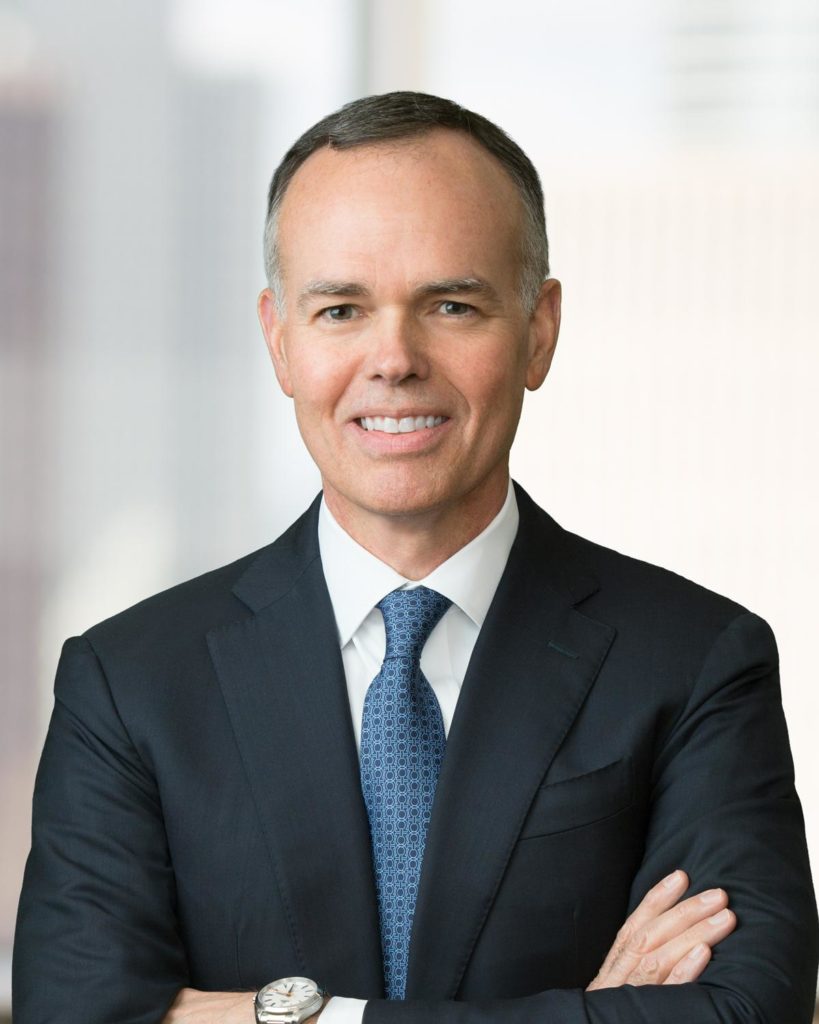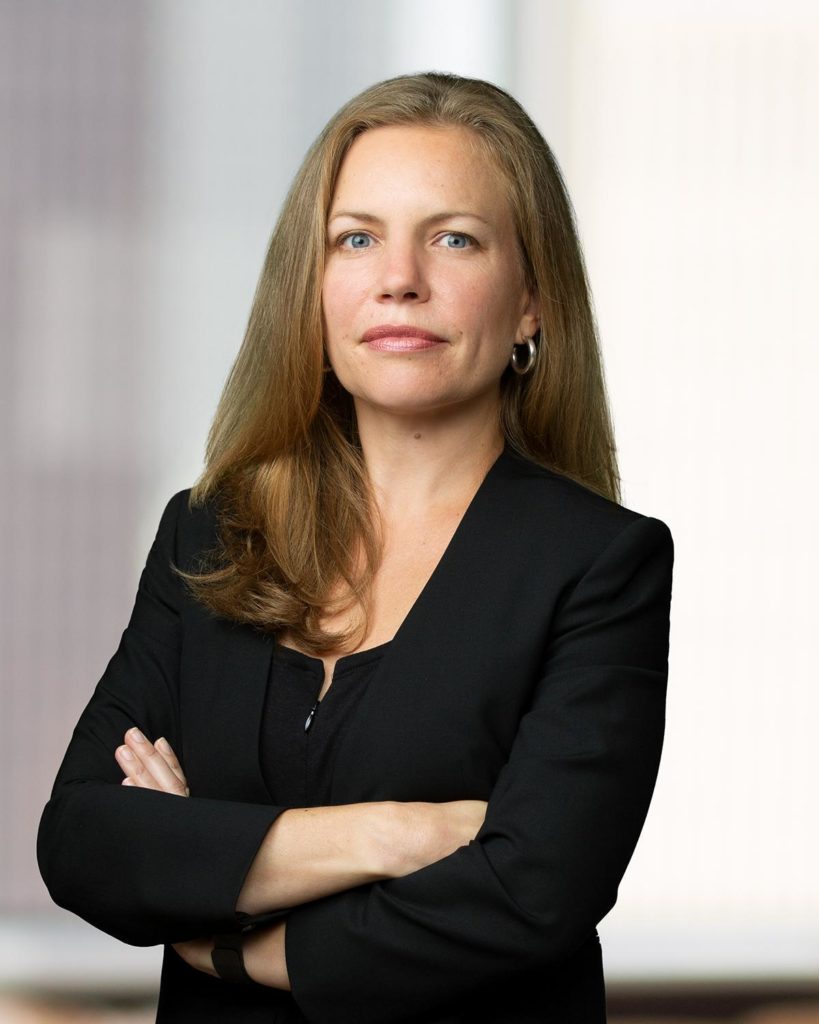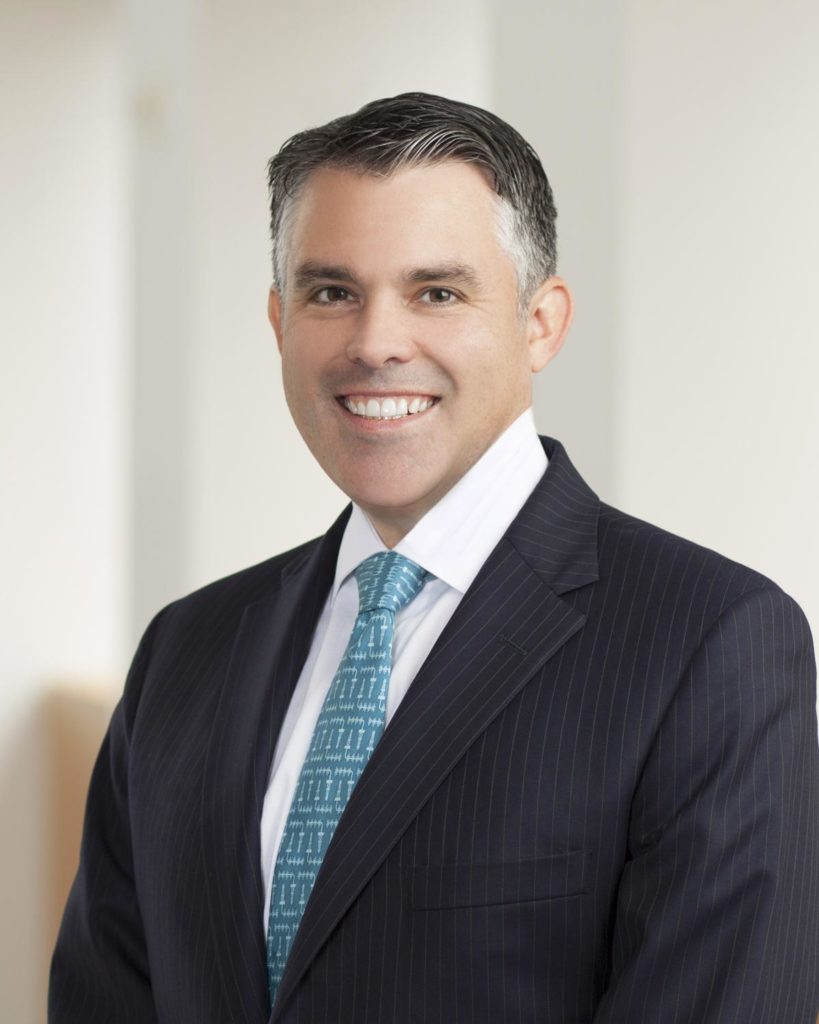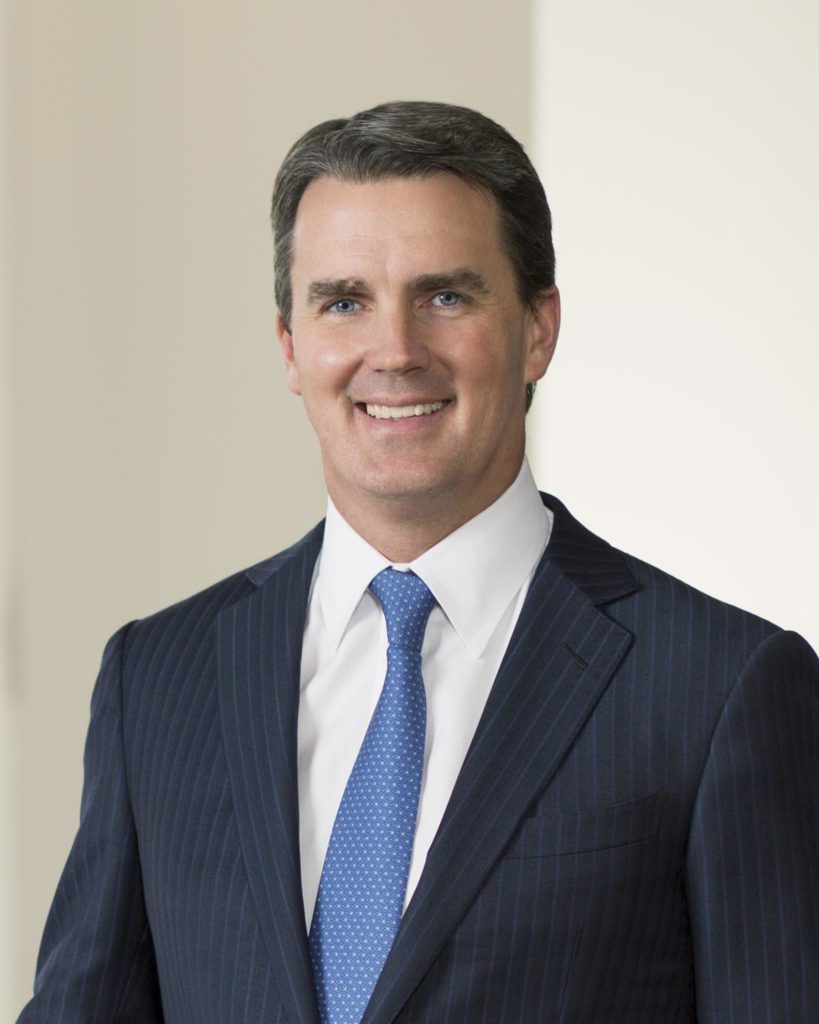
Keith Fullenweider
Vinson & Elkins has elected Keith Fullenweider as its new chairman to replace Mark Kelly. While the selection of Fullenweider was not unexpected, there is additional change in store for the 104-year-old Houston-based corporate firm.
Rather than follow the chairman-managing partner formation, in which Kelly teamed up with Scott Wulfe for nearly the past 10 years, three vice chairs have been elected to work in concert with the chairman.
Fullenweider, the son of a lawyer and a teacher, graduated from The University of Texas School of Law in 1988 and recalls placing a call to Kelly to accept his V&E offer. After being admitted to partnership in 1997, Fullenweider took on leadership of the V&E’s private equity and M&A practice from 2008 to 2016. The firm credits Fullenweider with its expansion into private equity transactions, in addition to solidifying its place as one of the country’s top private equity energy practices.
His clients include well-known private equity firms, such as TPG, Blackstone, KKR, Crestview and EnCap. He has experience counseling both the firms, in addition to their portfolio companies and affiliates, in a variety of transactions including, but not limited to the energy space.
In 2007, Fullenweider played a role alongside Bruce Bilger in counseling KKR and TPG in their acquisition with Goldman Sachs of TXU Corp. To-date, it remains the largest leveraged buyout in history, coming in at more than $32 billion. The company, in conjunction with the merger, later became known as Energy Future Holdings.
Fullenweider, who currently co-heads the firm’s corporate practice, marks the third Houston-based corporate partner in a row behind Kelly and Joe Dilg to lead the firm.
Yet, the incoming chairman pointed to the locations and practice areas of the three new vice chairs when asked about the direction of the firm in an exclusive interview with The Texas Lawbook.
Joining Fullenweider in the firm’s leadership transition as vice chairs will be Hilary Preston, the Austin-based chair of the firm’s intellectual property & technology litigation practice; Jim Fox, managing partner of the New York office and holder of a robust private equity practice; and Michael Holmes of Dallas, co-head of the firm’s complex commercial litigation practice.

Preston, who also graduated from UT Law, is a V&E lifer that started in the firm’s New York office in 2003 before moving to Austin, then back to New York and landing in Austin once again in recent years. Her work is typically tied to patent litigation involving sports and digital media, in addition to consumer electronics disputes.
Fox counts among his principal interests his family, his faith and the firm. He has also been with the firm his entire career, joining after graduating from Brooklyn Law School in 2000 where he started out in capital markets before pivoting to private equity.
Holmes, who joined the firm in 1997, initially worked in V&E’s Houston office, training under storied litigators such as Harry Reasoner and David Harvin, before moving to Dallas. Holmes’ practice deals primarily in commercial litigation, in addition to some advisory work tied to corporate governance.

All of these partners, along with Fullenweider, are current members of the firm’s management committee, and will shift into their new leadership positions on Jan. 1, 2022.
Fullenweider said the team approach to leadership not only resonated with the firm’s partners, but complemented the group’s priority of guiding strategic growth for the upcoming terms. That initiative includes building up certain practice areas outside of the firm’s core markets through recruiting, client development and developing and communicating key messaging points for the firm.
The leadership shift comes at a critical time for the firm as V&E and other large Texas legacy law firms have been under siege for most of the past decade by out-of-state firms that have sucked away talent and clients.
Last year, V&E saw its firmwide revenues decline by 1.3% to $782.4 million, but its profits per partner jumped 5% to $2.94 million.

V&E had 693 lawyers in its 12 offices worldwide, but 424 of those attorneys are in Austin, Dallas or Houston. The firm has more lawyers in Texas than any other law firm.
Outside of V&E’s robust presence in the Lone Star State, Fullenweider pointed to potential growth opportunities in New York, London, California and Washington, D.C.
Fullenweider said the onslaught of non-Texas firms into the Texas market has only given V&E more competence to compete in any elite legal market.
“That’s because we believe in our story, we believe in the quality of our lawyers, and we believe, when we get in front of people, our ability to close is exceptional – and that’s often in competition with some of the most successful firms in the country,” he added.
Beyond growth outside of Texas, Fullenweider pointed to a continued emphasis on building an industry-agnostic transactional and disputes practice.
The firm has seen concerted, intentional expansion into telecom infrastructure, private equity, real estate and capital markets in the past several years, and those efforts, which come along with the possibilities of even more international work, are likely to continue as the firm works to follow the relationships aside from industry and beyond the fast-evolving energy space.
Over the years, the key matter that brought Fullenweider, Fox, Holmes and Preston together was that they agreed on where they saw the firm’s potential to expand and grow.
Yet, beyond alignment in the foursome’s views on V&E’s growth, Holmes noted he and the others also had a fundamentally similar experience of V&E’s culture, noting inclusivity, respect and an expectation of excellence as hallmarks for how people at the firm and clients are treated.
Trust was listed as another key element that brought the group together, he said, as each partner plans to continue practicing while in their expanded leadership positions. The benefit of the larger team means someone else can step in and step up as needed pending the demands of a trial or deal.
Preston noted that staying involved with their respective practices and continued close work with partners and clients is also the best way to ensure the group is thinking about the firm’s strategy in the right way.
Fox pointed to the group’s track record in growing practice groups and offices over the past few years, and said that empowerment of the partnership, associates and staff will be a big part of the way the group governs in the years to come.
Conversations are underway, though no formal decisions have been made, to replace the foursome in some of their other leadership roles across the firm. Those shifts could continue into 2022.
The group is bullish on the volume of transactional and litigation work through the end of 2021 after an increase in activity in the first four months of the year and growth in hours-accrued revenue as Kelly and Wulfe close out their terms. Fullenweider said demand is up dramatically year-over-year, tied primarily to M&A and capital markets volume.
Fullenweider’s appointment follows last week’s announcement by Sidley Austin, a Chicago-founded law firm that has expanded quickly in Dallas and Houston, that Dallas litigation partner Yvette Ostolaza will be the global firm’s next chair.
In January, Haynes and Boone experienced a leadership change when long-time managing partner Tim Powers stepped aside for Taylor Wilson.
Last year, Norton Rose Fulbright, which is the four largest law firm operating in Texas by lawyer headcount, chose Houston litigation partner Gerry Pecht to be its global CEO and employment law partner Shauna Clark as its chair of supervisory committees.
